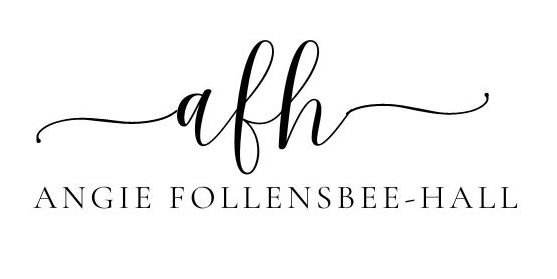Source: Origin Stories and Ancestors
Source: Origin Stories and Ancestors
Shall we begin at the beginning?
I have a fine arts background, and I studied art history both in high school and in college. Every art history text I read in school began with cave paintings in Lascaux, as though our common human ancestral history, or at least the beginning of art and creation in humanity, began in France. It is told that these images are of male hunters or male spiritual leaders who recorded this history deep within the caves. There is no mention of what the women did.
But who wrote that story? Who chose the stories that would be passed on, that would tell the ancestral tale of humanity? Did humankind not begin creating art and stories much earlier than those cave paintings? And why is this story always beginning in Europe?
Archaeology tells us that our ancestry begins in the plains of Africa. According to these stories, the first humans emerged as “homo habilis” who lived 2.4 million years ago in Eastern and Southern Africa. Homo sapiens, our direct evolutionary ancestors, emerged only 200,000 years ago, only a tiny blip on the geological timescale, also in Africa.
So if we are to truly understand and bring inquiry into our ancestry and our creation stories, we must look to the stories of African cultures. Our first shared human stories do not begin in white bodies, they begin in black bodies. Our first languages began in the continent of Africa. Just as modern click languages hold a link to the tongues of our ancient ancestors, the stories of African cultures hold the links to our first human stories.
The cradle of humanity is the continent of Africa. When we can honor and revere these stories and cultures for their contribution as the foundation of all emerging and evolving stories, we honor our ancestors.
Please note: I am not asking you to practice these traditions, only to grow in your knowledge, understanding, and appreciation of stories not typically shared in our human origin and creation narratives. It is vital that within this inquiry we understand a broad scope of origin stories, especially those stories that have been oppressed and removed from our historical teachings. It is also important to learn the origin stories of our own more recent ancestral traditions.
When seeking to listen to stories of cultures not our own, I believe it is best to listen to the voices of people who are closer in ancestry to those stories. During this course, if a story is from my own ancestral lineage (Sicilian, Italian, French, and UK (including England, Ireland, & Scotland, and some distant Norse traditions), I will share the story in my own voice. If the story is from a tradition not of or in my lineage traditions, I will share the voice of someone else via a link or reference.
Source Creative Project:
Write or artistically express your origin story. What is the story of your ancestry? Where did your family come from? What are the practices of those cultures? What is your role or relationship to those practices?
Journaling Questions
For this module, I encourage you to bring inquiry into and to grow your knowledge of the following:
What is the Igbo religion?
What is the Yoruba religion?
What is animism?
How might these practices have affected the more well known and celebrated Egyptian culture and religions?
How did the African diaspora (beginning in the 15th Century ADE) impact the culture and the people who followed these religions and beliefs?
What connections might you see between these ancient origins and modern day spiritual beliefs? How are they similar? Different?
Links for your inquiry:
Brief History of Ancient Egypt
Put Your Hands on Your Hips and Act Like a Woman: Black History and Poetics in Performance, written by my MA thesis advisor, Gale Jackson
Ancestral Connections: Persephone and Demeter
Here is the story of Persephone and Demeter, a story from my own lineage. It is said that this is a telling of the creation of the seasons. Persephone and Demeter were goddesses who lived on the island of Sicily, and the god Hades is said to have lived deep within the volcano Mt. Etna. There are many versions of this tale, but I prefer the interpretation of Persephone not as a victim but one where she steps boldly into her role as a radiant Queen and Goddess of the underworld.
The pomegranate is featured in the Persephone story, and is a an ancient symbol of fertility and creation. Pomegranate seeds are high in antioxidants, vitamin C, and are said to benefit digestion. Both the raw seeds and the pressed juice can be consumed daily.
Interview: Meet Desiree Mwalimu Banks!
Desiree and I met at Goddard College and we felt an immediate connection to each other and our creations in the world. In this conversation, we discuss her personal story, her ancestry from both Zambia and India, the importance of our personal ancestry, and how she embodies the divine feminine.
I hope you enjoy this conversation with Desiree, a powerful wisdom holder.
Many of us with European and Christian or Judaic ancestry can often feel that we do not connect with the oppressive cultures and practices of our ancestry. But I implore you to look deeper. When were those cultures practicing in a spiritual way not connected to oppressive and patriarchal traditions? At one point, all European cultures were indigenous and believed in animism. How were those older practices woven into modern day practices (what my Italian ancestors called “la vecchia religione,” the old religions)?
As Desiree and I discuss in this conversation, it is not inherently wrong to practice in a tradition outside of our own ancestry. BUT if we never look at the practices of our own ancestry, if we never speak of or teach from those practices, we leave gaping holes and gaping wounds in our own sense of meaning and connection.



